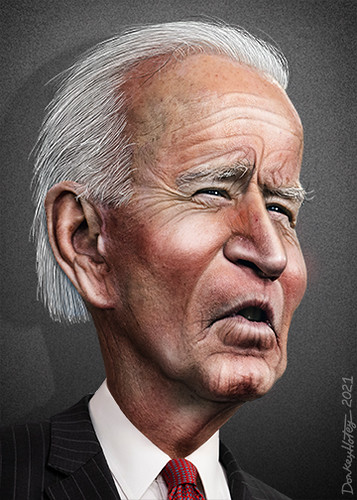By Norman Solomon and Jeff Cohen
These days, conventional media wisdom says that President Biden will have a smooth path to renomination if he wants it.
Don't be so sure.
Fifty-five years ago, pundits scoffed when a Democratic senator announced that he was running against incumbent Lyndon Johnson for their party's presidential nomination. Eugene McCarthy launched his campaign to challenge Johnson's continual escalation of the war in Vietnam.
Joe Biden's public approval rating is now at 42 percent, virtually identical to what it was for President Johnson when the McCarthy campaign began in November 1967. A few months later, on March 12, 1968, McCarthy received 42 percent of the votes -- a stunning result, just 7 percent behind Johnson -- in the first-in-the-nation New Hampshire primary. Senator Robert Kennedy jumped into the race four days later. And two weeks after that, Johnson shocked the country by declaring that he would not seek re-election.
It would be nice to hear from Biden the kind of statement that Johnson made: "I do not believe that I should devote an hour or a day of my time to any personal partisan causes or to any duties other than the awesome duties of this office -- the presidency of your country." But Biden has said in recent weeks that he intends to run again.
Spinners aligned with the White House are careful to detour around the notable shortage of enthusiasm for Biden among the Democratic electorate. New polling found that 57 percent of Democrats don't want him to be the party's nominee.
(Note: You can view every article as one long page if you sign up as an Advocate Member, or higher).






